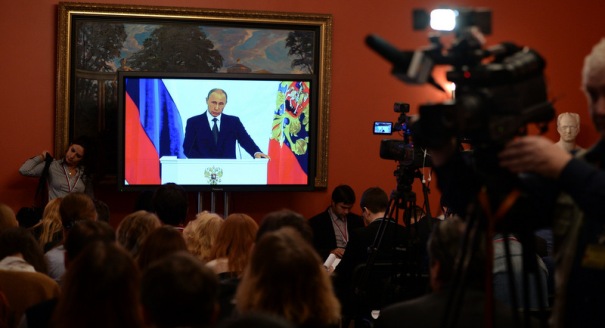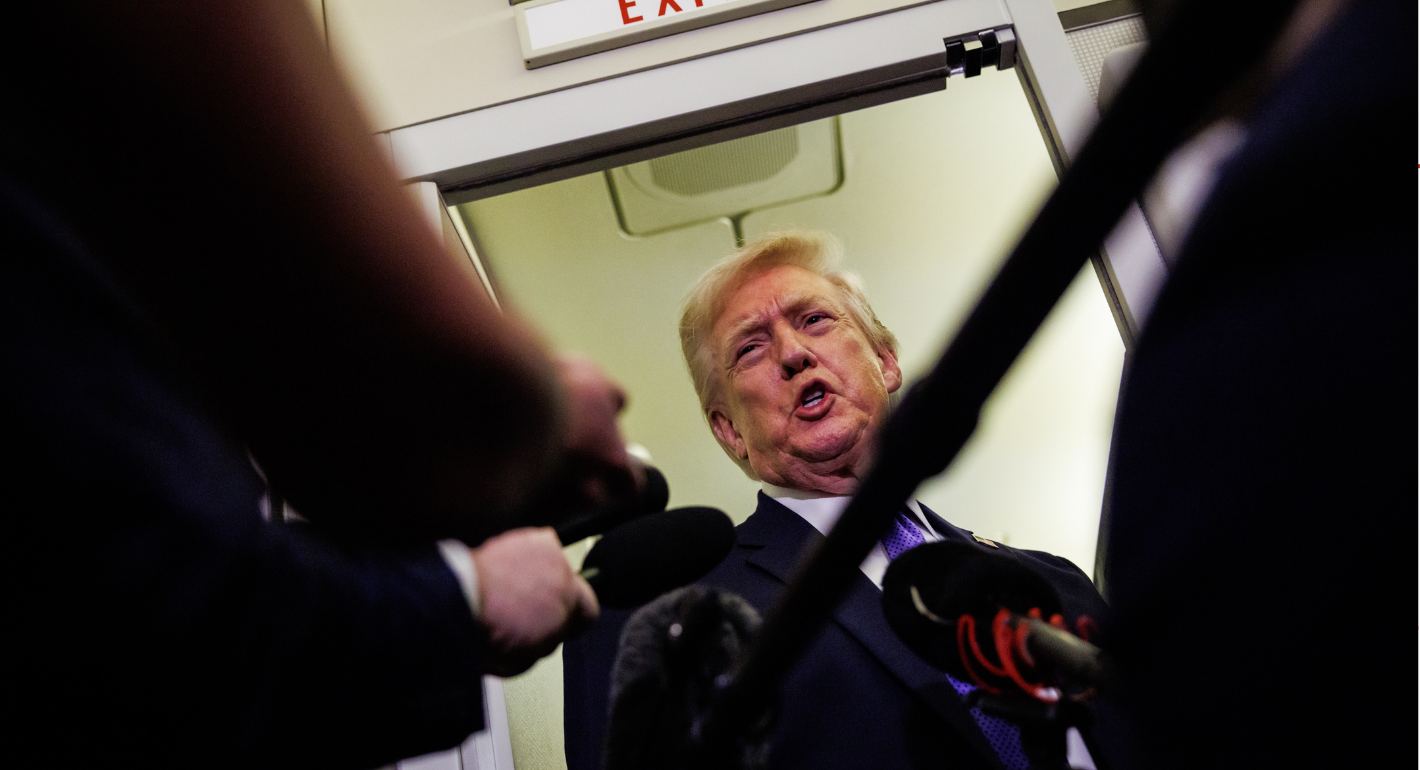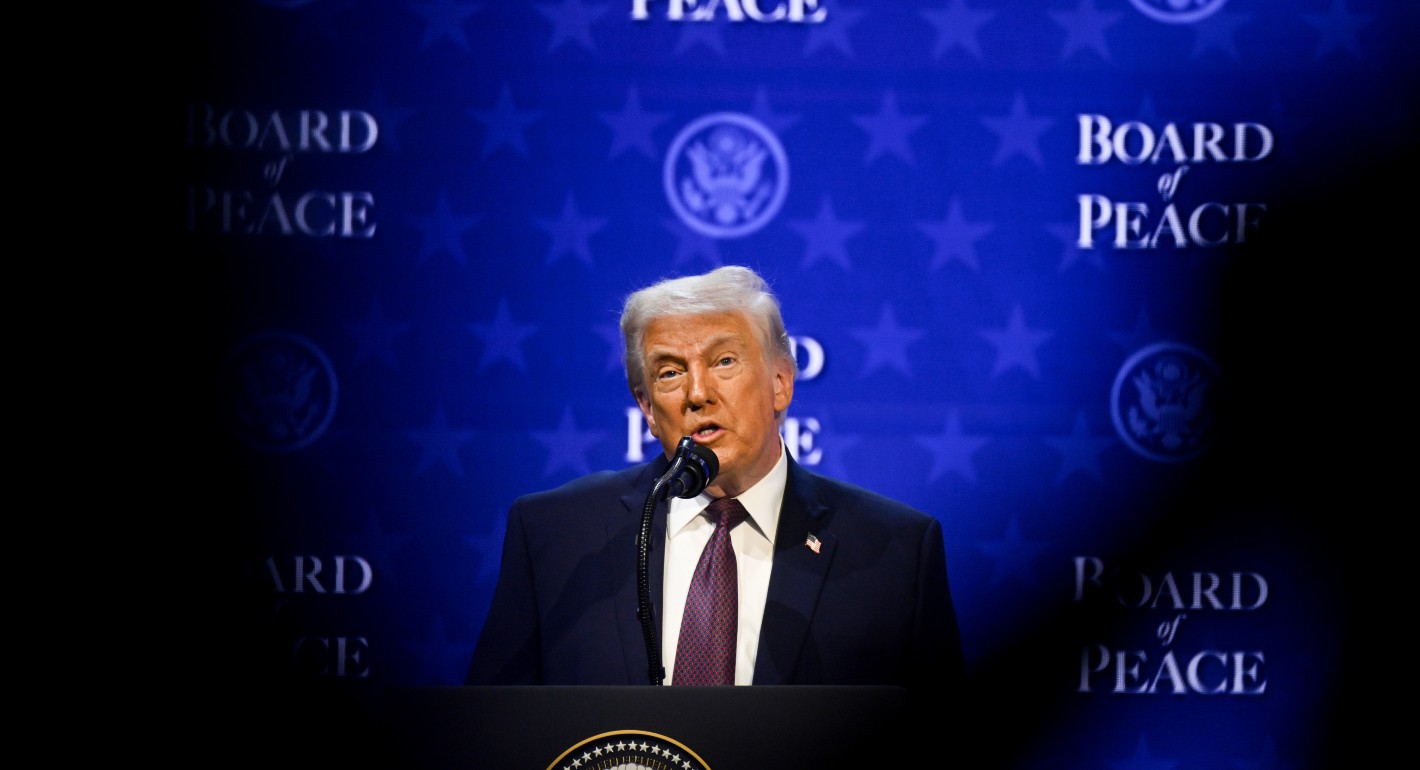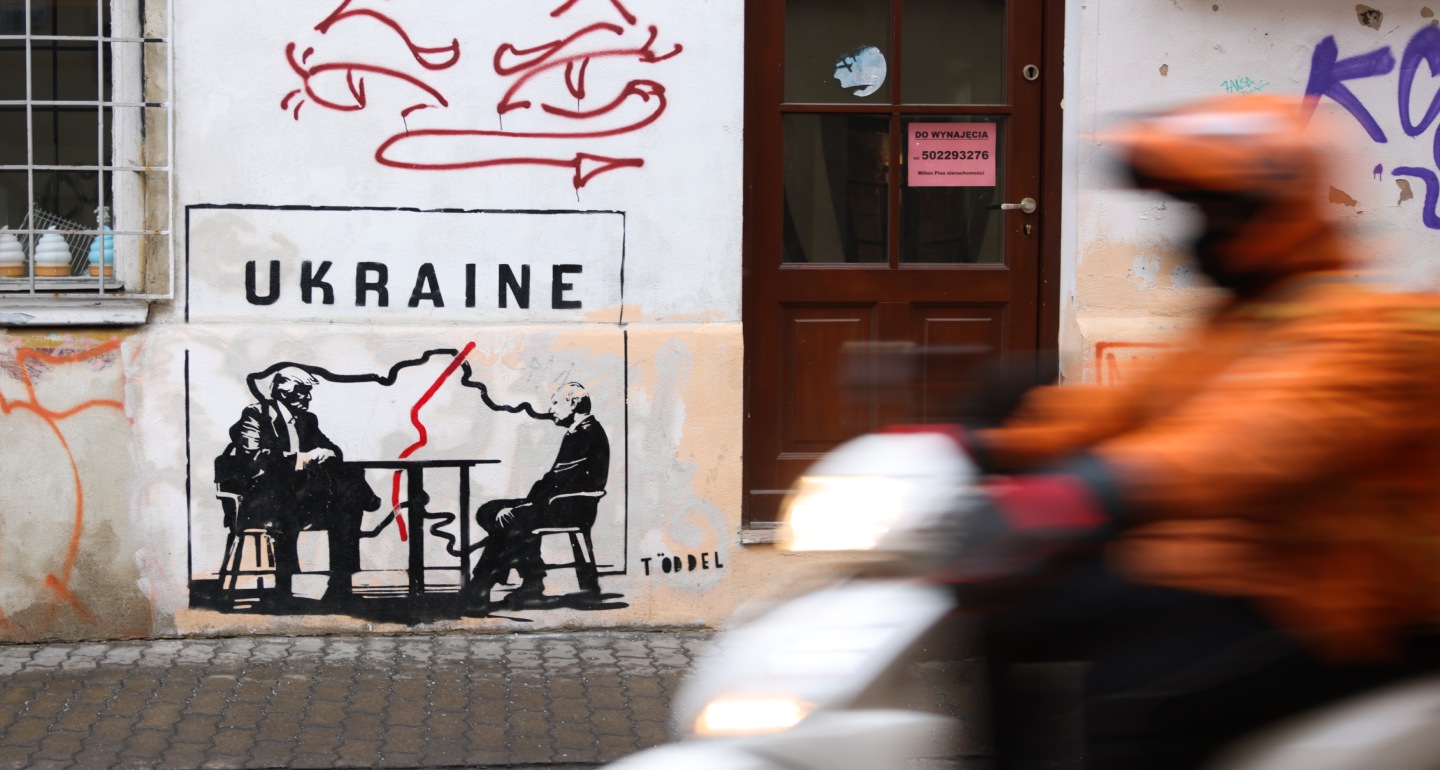Several Carnegie experts from different offices discuss the significance of Putin’s address to the future of Russia and its role in the international community.
How do you evaluate Russian President Vladimir Putin’s address to the Federal Assembly? Do you think his speech has implications for Russia’s foreign policy and its relationship to your country/region?
Lina KhatibDirector, Carnegie Middle East Center
The economy loomed large in President Putin’s Federal Assembly address, but the speech also sought to justify Russia’s foreign policy by presenting it as being about the pursuit of the country’s “legitimate interests.” Putin painted Russia as an international actor that had grown “too strong or independent” for some, triggering an arrogant West to try to “contain” it through sanctions and push it toward isolationism—a move that Russia has been resisting, according to Putin. As such, Russia’s actions in Ukraine were presented as being about guarding Russian sovereignty in the face of a U.S.-led conspiracy.
This argument of Putin’s also indirectly hints at the reasons for Russia’s stubbornness regarding Syria. Although Syria was not mentioned in the speech, the desire for “stability as a vital condition of development and progress” coupled with a nod to the East, “where politics are not mixed with economics,” indicate that Russia is seeking new partners in the East to balance out the dominance of the West and to challenge its agenda. A strengthened partnership with China would provide backing for Russia’s position in the UN Security Council, help rescue Russia’s economy, and support its political ambitions to resurrect itself as a superpower—killing several birds with one stone. In pursuit of this last end, Russia cannot afford to be seen as backing down in the face of American pressure. But the pursuit of “stability” may well be the wild card that Russia uses to justify future actions in Syria, were Russian and U.S. goals there to become aligned. Such a justification, however, would only be possible for Russia if its status as a superpower were internationally acknowledged.
Shi HanResident scholar, Carnegie–Tsinghua Center for Global Policy
Russian President Putin’s “state of the union” address gave little indication that Russia and China will get much closer, not even in terms of business ties. China, Russia’s largest trading partner, was hardly referenced in the speech. Instead of going east after falling out with the west, the president wants to stay where he is—relying on the domestic Russian market itself to solve economic problems.
National markets are often upheld in presidential speeches, especially in times of crisis. But business continues to operate in a manner that, more often than not, undermines national borders. After the global financial crisis, the U.S. president spoke about bringing manufacturing back to America and the Chinese president vowed to switch its economic model to one oriented toward domestic consumption. But Chinese exports to the United States accelerated following these changes to the two countries’ national policies. In this, the stronger U.S. dollar helped.
The Russian ruble has plummeted to a historic low. The devaluation is bad news for Russian companies importing cellphone parts from China, because it means they have to pay many more rubles for the same parts. But it’s good news for Russian companies selling Russian beers to Chinese consumers. With the less expensive ruble and the consequent ability of Russian beer makers to lower selling prices, these producers have an opportunity to undercut Budweiser and other international beer brands in China.
Russian state companies have been selling lots of oil, gas, timber, and other resources to their Chinese counterparts. Heavy equipment is also promoted by Russia, but has proven a harder sell in China. Until now most Russia-China transactions have taken place in upstream industries in which government control and state ownership are prevalent. Now, China’s freewheeling consumer markets downstream calls for some real Russian entrepreneurship and private initiatives. The cheaper ruble and reasonably priced Russian products will work just fine for regular Chinese consumers with moderate incomes.
Indeed, even if Russian businessmen can sell as much beer to Chinese drinkers as New Zealand dairy product companies sell milk to Chinese schoolchildren, the chances of averting an economic recession in Russia are remote. But the severely weakened ruble is likely to bring Russian businesses closer to consumers in China, where no one relies on the domestic market.
Ulrich SpeckVisiting scholar, Carnegie Europe
Vladimir Putin’s speech on December 4 did not include any message that would signal to my country (Germany) that Russia is changing its course—quite the opposite. The Russian president painted a picture of a Russia under attack from the West, something that looks quite surprising from a Western viewpoint given that it is Russia that has used military force against Ukraine.
Berlin and other Western capitals will see this portrayal as a narrative for domestic consumption, but one that is dangerously moving Russia in exactly the direction Putin said in his speech Russia would not choose: “the path of self-isolation, xenophobia, suspicion and the search for enemies.”
In more detail, Putin obviously felt a strong need to justify the Russian attack on Ukraine and his country’s confrontational course toward the West. He did so in three ways. First, he made a legal, ethnic-historical, and religious case for the annexation of Crimea—prominently at the beginning of his speech. Second, he claimed that the EU had ignored Russian “legitimate interests” in Ukraine. (The truth is that the EU has offered to talk to Russia many times but has refused to include Russia in bilateral negotiations with Ukraine.) Third, he painted the West as an enemy that wanted to destroy Russia by supporting separatism.
What Putin avoided almost entirely was the situation in eastern Ukraine. There was no mention of the separatists, of the Minsk Protocol that aims to end the fighting, or of Novorossiya, a historical term for part of the Russian Empire recently reinvoked by the Kremlin. By contrast, he did talk about Ukraine’s difficult economic situation and cast doubt on the West’s readiness to help.
That supports the view that Russia is not going to push for more territory for the rebels in eastern Ukraine in the near future. Rather, Russia seems to be hoping for a downfall of Ukraine’s new government and seems to be expecting to be able to implement a Moscow-leaning figure afterward.
Putin did not make the case for an alternative world order. Instead, he argued at length that Russia’s behavior is in line with international law. He referred to Asian partners, but he didn’t argue in favor of a full-fledged pivot to the Asia-Pacific or deeper engagement with the other BRICS countries of Brazil, India, China, and South Africa.
On the Eurasian Economic Union (EEU), Putin said very little besides sending the message to Belarus and Kazakhstan and to prospective members such as Armenia that membership in the EEU would not endanger their sovereignty.
Again and again, the president highlighted the value of sovereignty as “absolutely necessary” for Russia’s survival. That, however, is a view that sharply contrasts with the idea of building an EU-like association in the post-Soviet space—that is, a bloc in which member states trade parts of their sovereignty in return for systematic, institutionalized cooperation. In line with that view, Putin spoke dismissively about EU countries for which “national pride is a long-forgotten concept and sovereignty is too much of a luxury.”
Tao WangResident scholar, Carnegie–Tsinghua Center for Global Policy
Due to economic difficulties and ongoing Western sanctions, Vladimir Putin’s hopes for reviving the Russian economy and attracting more foreign direct investment will largely depend on the success of Russia’s embrace to the Asian market, especially China. In his speech, Putin called for creating a more liberal and fair investment environment and for eliminating the difference between domestic and international capital, even in the protected oil and energy sector. This sent out a signal of inviting increased energy cooperation with Asian countries, China in particular and the expansion of the formats energy cooperation with Chinese state owned oil companies could potentially take.
The main focus of the speech was on domestic economy, and much less attention was given to diplomatic issues. As nearly 50 percent of the Russian government’s budget revenue comes from the energy sector, the speech’s focus implies a need of opening up of more of the Russian economy and energy sector toward trade partners such as China, especially in energy trade and investment. Given the existing large gas and oil deals with China, it is unlikely that Russia and China will reach an agreement on a new trade deal any time soon, but Russia will certainly benefit from increased Chinese investment in its energy sector. How this will align with Putin’s hope to develop Russia’s own technology and equipment is yet to be seen, but certainly recent developments in Russia create an opportunity for Chinese oil state owned enterprises to further their investment and collaboration in Russia.










